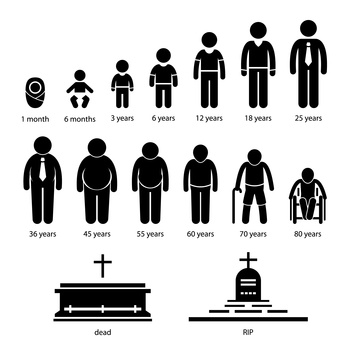Losing a loved one is difficult for families, and planning a funeral can make it even harder. Carrying out the last wishes of a loved one may also prove to be difficult at a time like this. Not to mention costly. These are just some reasons many people look for the best burial insurance for seniors.
Compare Burial Insurance Quotes: Save BIG Now!
A plan like this can help the family be as stress-free as possible, and at the same time, all last wishes of their dearly departed can be planned and carried out without incurring any major financial setbacks. You only need to request free quotes from funeral insurance companies to get started.
Alert: This is a complete guide on burial policy and is appropriate for those who want to save money. So, be patient and read all. We also offer free quotes, so you buy the best burial coverage at the most affordable rate.
Burial Insurance for Seniors Overview:
According to the latest data (2021) from National Funeral Directors Association, the average cost for an adult funeral with burial is $7,848 and a funeral with cremation is $6,971.
Depending on the arrangements made, the price can go up to $10,000. Seniors who may not have an existing life policy but want to settle death plans may consider purchasing funeral insurance for seniors.
Compare Burial Insurance Quotes: Save BIG Now!
In simple terms, this is a type of small life insurance with a death benefit. This guarantees that a monetary amount will be released to the family or assigned beneficiary when the policyholder dies. The money may be used towards funeral fees, medical bills, debt, and other expenses that may arise.
Proper planning is a must when buying any type of insurance and details of final expense insurance for seniors should also be addressed.
AARP Burial Insurance Plans
AARP is a U.S.-based interest group that serves all persons who are over the age of 50. The goal is to help those who are retired or near retirement to live well. AARP helps aging Americans remain both intellectually active as well as physically fit.
Pros
- AARP gives you a group discount.
- AARP can give you a snapshot of the various plans and their options.
Cons
- You have to be over the age of 50.
New York Life is the sole provider of life insurance via AARP. If another company were to take over, it could change the nomenclature of the program.
Term Life
There is no burial insurance, so if you’re seeking one, this is definitely not the policy to choose. However, they will try to push this particular policy as burial insurance. Unfortunately, there are no burial insurance coverages in the final expense clauses.
Simplified Issue Whole Life
This is a true burial insurance policy you may purchase anywhere from age 45 to 80. There is no discrimination against those who may smoke tobacco or chew tobacco. Other benefits of the policy: the monthly premium won’t change through the policy’s life, there is no waiting period, and the benefits won’t decrease. Unfortunately, it’s a higher premium than most of the competitors. There are 3 basic questions that must be answered.
Guaranteed Issue Whole Life
Guaranteed regardless of health. It runs about midline for pricing. You apply to the policy, pay the premium, and you’re covered. If you die in the first year, no benefits will be paid. No health exams or medical questions are asked if you are ill. This may be the best route to go.
AARP, a renowned life insurance provider, offers a guaranteed life policy of up to $25k that requires no medical exam or health questions. The rate is fixed throughout the term and quite affordable as well. It should be enough to cover medical and funeral expenses for seniors.
How Much Is Senior Burial Insurance?
Final expense life insurance covers families’ end-of-life costs, including any remaining legal or medical expenses that your estate settles.
It is also called burial insurance because the coverage includes paying for funeral arrangements.
When you have the proper levels of protection with your burial insurance, you’ll ensure that your family and loved ones don’t have a financial burden to manage.
In 2022, the average funeral cost was over $10,000 in many states. Can your family absorb that kind of expense right now?
Insurance companies split burial insurance costs into categories based on general demographic categories. When you apply for a policy, you’ll be asked about your age, health, and tobacco use habits.
Additional questions might be part of the application process. Please remember to answer them honestly to ensure you receive a fair, accurate, and legal quote.
Although burial insurance quotes are highly individualized, these averages show what to expect for each category. The coverage amount for this data is set at $15,000. However, most insurers provide between $5,000 to $100,000 (or more) to ensure your family has the help they need for these final expenses.
Burial Insurance Costs for Tobacco Users Per Month
| Age/Gender | Coverage Amount | Standard | Standard Plus | Preferred | Preferred Plus |
| 60-69 Men | $15k | $182.27 | $156.39 | $151.82 | $130.51 |
| 60-69 Women | $15k | $167.45 | $146.51 | $139.85 | $125.57 |
| 70-79 Men | $15k | $228.14 | $186.97 | $294.25 | $145.80 |
| 70-79 Women | $15k | $194.76 | $164.71 | $259.34 | $134.67 |
| 80-89 Men | $15k | $310.67 | $241.99 | $367.93 | $154.79 |
| 80-89 Women | $15k | $255.11 | $204.95 | $302.57 | $246.80 |
| 90+ Everyone | $15k | $852.00 | $842.59 | $829.19 | $805.82 |
Insurance costs are higher for tobacco users because smoking increases the risk of numerous health issues, including cancer, heart disease, stroke, and respiratory diseases.
This increased risk means that tobacco users are more likely to file a claim, which results in higher monthly costs.
Insurance companies use actuarial science to determine premiums. This practice uses statistics and mathematics to assess and manage risk.
Burial insurance companies can’t deny coverage to someone simply because they use tobacco.
Burial Insurance Costs for Non-Tobacco Users Per Month
| Age/Gender | Coverage Amount | Standard | Standard Plus | Preferred | Preferred Plus |
| 60-69 Men | $15k | $110.49 | $113.61 | $76.61 | $39.61 |
| 60-69 Women | $15k | $79.81 | $95.96 | $64.89 | $33.71 |
| 70-79 Men | $15k | $218.27 | $145.19 | $97.63 | $50.11 |
| 70-79 Women | $15k | $157.00 | $109.47 | $73.85 | $38.21 |
| 80-89 Men | $15k | $326.75 | $219.22 | $145.13 | $74.81 |
| 80-89 Women | $15k | $234.22 | $161.64 | $109.47 | $55.61 |
| 90+ Everyone | $15k | $801.80 | $752.34 | $704.90 | $685.34 |
If you have smoked in the past but have quit and are no longer using any tobacco products, you can still qualify as a non-tobacco user for burial insurance purposes.
Each insurer may have different criteria for defining a non-tobacco user, so you must check with the specific insurance company you are applying for.
Generally, you’ll get asked about your tobacco use history during the application process. These questions include whether you have used these products previously and when you quit.
If you have quit smoking for a certain period, such as one year or more, some insurance companies may consider you a non-tobacco user.
Please remember that providing false information when applying for burial insurance (or any life insurance type) can result in claim denials and policy cancelations. There could also be legal consequences for misrepresenting your choices and behaviors to get a better rate.
Burial Insurance Costs for Simplified Issue Plans Per Month
| Age/Gender | Coverage Amount | Standard | Standard Plus | Preferred | Preferred Plus |
| 60-69 Men | $15k | $182.67 | $150.27 | $108.24 | $45.19 |
| 60-69 Women | $15k | $143.49 | $116.06 | $83.30 | $35.41 |
| 70-79 Men | $15k | $315.09 | $274.70 | $238.67 | $219.48 |
| 70-79 Women | $15k | $274.34 | $232.00 | $189.55 | $149.37 |
| 80-89 Men | $15k | $472.45 | $405.71 | $362.12 | $346.74 |
| 80-89 Women | $15k | $482.15 | $380.91 | $372.98 | $311.08 |
| 90+ Everyone | $15k | $714.24 | $692.50 | $658.20 | $632.15 |
Simplified issuance burial insurance may be a good option for individuals who have difficulty getting approved for traditional life insurance due to age, health issues, or other factors.
It typically has lower coverage amounts and higher premiums than traditional life insurance policies, but the application process is much simpler and faster.
The insurer might ask you several questions as part of the application process. Most are simple “yes” or “no” answers, but there could be some short-form lines to fill out.
These questions are used as a screening tool to determine your health category and eventual monthly rate.
Burial Insurance Costs for Guaranteed Issue Plans Per Month
| Age/Gender | Coverage Amount | Standard | Standard Plus | Preferred | Preferred Plus |
| 60-69 Men | $15k | $221.44 | $190.16 | $178.42 | $158.67 |
| 60-69 Women | $15k | $110.19 | $87.25 | $64.00 | $51.80 |
| 70-79 Men | $15k | $446.27 | $403.38 | $398.18 | $369.97 |
| 70-79 Women | $15k | $329.83 | $297.56 | $285.79 | $162.50 |
| 80-89 Men | $15k | $589.22 | $546.47 | $513.34 | $489.93 |
| 80-89 Women | $15k | $467.10 | $439.38 | $410.77 | $374.69 |
| 90+ Everyone | $15k | $876.55 | $854.37 | $814.85 | $801.90 |
Guaranteed issue burial insurance is a policy type offered without requiring medical underwriting or a health screening. That means the insurer does not assess the applicant’s health status or medical history before coverage issuance.
As a result, guaranteed issue insurance is typically more expensive than traditional insurance policies that do require underwriting.
Adverse selection is one of the primary reasons for the increased costs in this category. It occurs when those more likely to need insurance will apply for it.
Is Burial Insurance an Investment That Makes Sense?
While burial insurance can provide peace of mind to some individuals concerned about the financial burden of funeral expenses on their loved ones, it is not an investment in the traditional sense.
Unlike other life insurance policies, this option typically does not accumulate cash value over time, nor does it offer the potential for investment returns.
If your primary concern is to ensure that your final expenses are covered, and you want to avoid burdening your loved ones with these costs, burial insurance is worth considering. Please remember to evaluate the policy terms and compare quotes from several companies before making your final decision.
Funeral Insurance Planning Tips:
When planning for funeral insurance, it is also important to consider specific details such as the type of burial the policyholder wants. Cremation, ground burying, crypt, and entombment have different outcomes and prices. Plan owners must consider how they would like to be laid to rest. Burial location should also be factored in when considering the type of burial to be done.
The choice of service to be carried out should also be part of your planning. These include graveside services, funeral services and memorial services. Other details to be planned include the type of casket, music and flowers. When planning, professionals are present to assist and document the details.
Knowing these details is essential since it will help better understand the coverage needed. In cases where plan holders are not ready to make such choices, just setting aside a specific amount for the different services is possible.
How to claim a death benefit?
The beneficiaries and claiming death benefits are also deliberated when planning. A beneficiary may be assigned to receive the payout, whether a lump sum or monthly payment. Upon the death of the insured, the beneficiary must contact the provider. A death certificate, insurance policy, and other necessary documents must be provided for claiming benefits.
Get Free Burial Insurance Quotes from us to Compare the Rate Online Now!
Types of Burial Coverage:
Burial coverage also includes options for arranging details after the insured’s passing. These are found under prepaid coverage or preneed coverage.
A prepaid funeral can be paid for in advance without the details being completed, especially if this is being bought as burial insurance for elderly parents. Family members may fulfill details for arrangements later on. It may also be done with all the details and last wishes of the plan holder. In cases such as this, the funeral service operator provides the details of the costs.
On the other hand, a preneed burial plan allows the owner to take care of all the details of their funeral in the future. In this case, the plan holder may make decisions alone or with family members. All arrangements are then carried out when the right time comes.
When you apply for affordable burial insurance for seniors, age matters. Thus, you will find different pricing for people of different ages.
Pros and Cons of Prepaid Burial Coverage:
Prepaid funerals are also a good choice for people with pre-existing health issues since they can be a way to help prepare for your passing.
The upside to having a prepaid funeral is that the planned cost remains the same, even if the funeral is years away. In short, it is not affected by inflation. It lets the owner carry out the last wishes and arrangements without worrying about price changes. Installment payments are also possible for this type of funeral arrangement.
On the contrary, it may not be flexible if the owner moves out of state, although some plans may be transferable. Also, if the owner changes their mind about the plan, a refund may not always be possible.
Pre-Need Burial Coverage:
In this case, the plan holder may take matters into his own hands and decide on all the necessary details for his passing. This can help ensure that all the necessary details are already taken care of and carried out according to the plan holder’s desires. Everything from documents down to flowers, music, and the type of burial will be settled.
Not only does this allow for desired arrangements to be carried out, but it also keeps loved ones from making these decisions. This makes it a good choice when buying burial insurance for parents.
On the downside, since this service is not paid for in advance, it must be paid for at the time of death. This can be paid for in cash by family members or through other means. Regular funeral insurance for seniors will likely cover a plan such as this.
What Are the Inclusions of a Standard Burial Coverage?
Generally, the items covered by a standard burial policy for the elderly are the following:
- Casket or urn
- Grave marker or headstone
- Cremation cost
- Cost of embalming
- Funeral cars
- Flowers
- Digging and filling of the grave
- Burying plot
How Do You Choose the Coverage Amount?
Choosing the amount of coverage for burial insurance for a senior citizen can best be done after doing some research.
Consider the current prices for the different arrangements that need to be carried out. This will give you a good idea of what the standard inclusions will amount to. Additional costs must also be considered, and you should give room for unexpected expenses.
Things such as outstanding bills, medical costs if there is no other coverage, and any existing health conditions can also be added to the estimate. All these will give you a good idea of how much final expense insurance is needed.
Getting Free Burial Insurance Quotes
You can start your comparison shopping here and branch out to include other companies until you find the policy and rates that best fit your budget. We encourage you to start with us and see why so many have chosen our services for having the lowest rates for the best burial policy.





